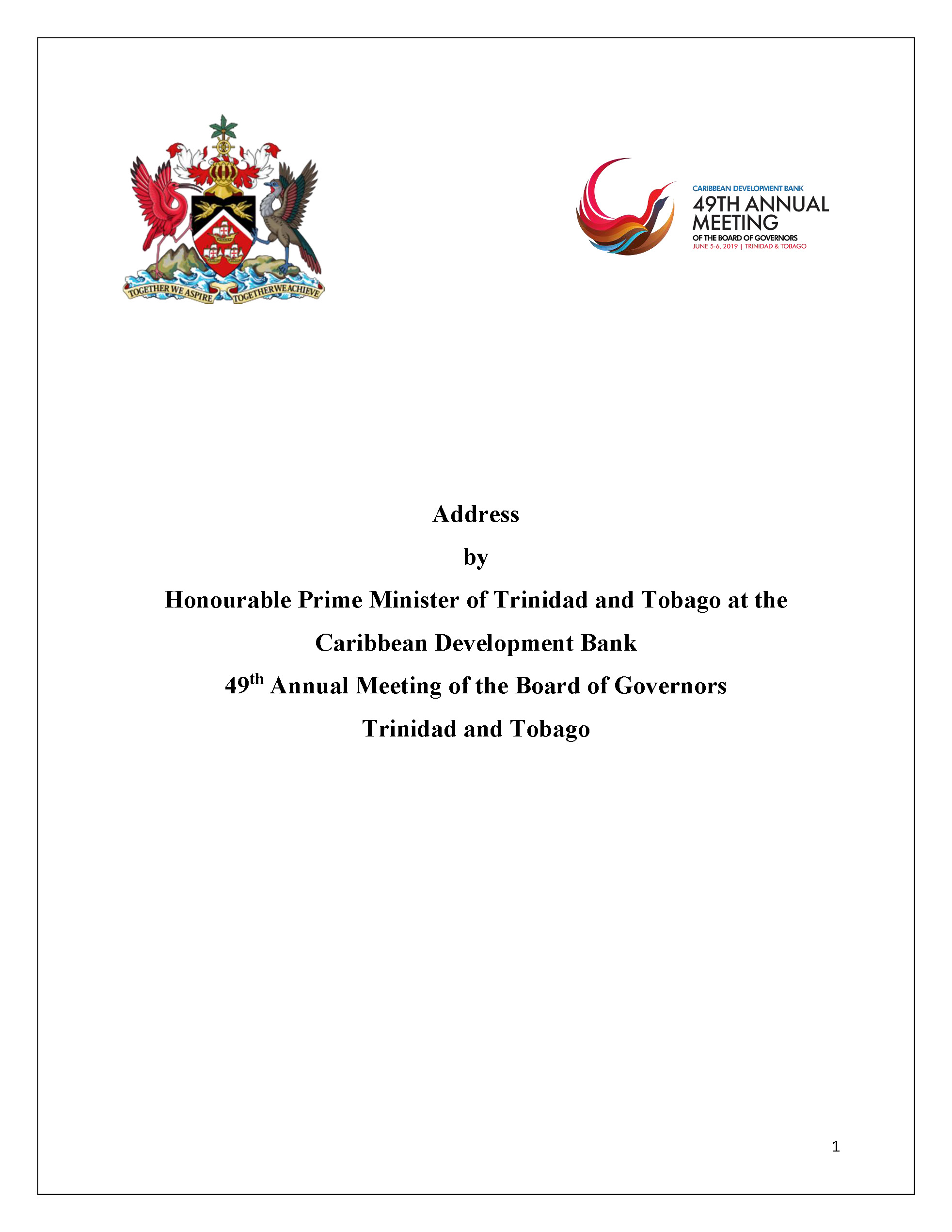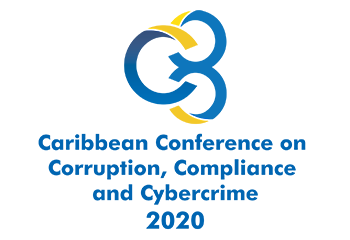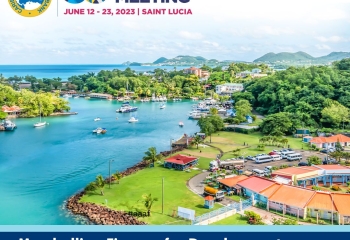
On behalf of the people of the Republic of Trinidad and Tobago and my Government I extend a warm welcome to you and to our beautiful country. It is a great pleasure for me to be here this morning at the opening of the Forty-Ninth Annual Meeting of the Board of Governors of the Caribbean Development Bank (CDB). Trinidad and Tobago is honoured to once again to host this Board of Governors’ Meeting.
The theme of this year’s Meeting, “Transformation,” is most apt given our current development context. We are at a critical juncture in our Region’s development where building and strengthening our resilience to external and internal vulnerabilities is of upmost importance for our sustained development. We must transform our societies to points where, as Small Island Developing States (SIDS), we have robust and inclusive growth; develop new means of financing and become more climate resilient. We must also harness the true potential of the Blue Economy; innovate and utilise new and green technologies; and have an environmentally conscious population.
Ladies and gentlemen, as a people, we have to embrace a common vision of where we want this transformational process to take us and how we intend to arrive at that destination. If we were to trace the evolution of the Caribbean region, we would realise that much of our accomplishments were based on the strength and foresight of our forefathers. Is it not possible therefore to carve out another phase in that same evolutionary pathway? However, this has to be hinged to a collective goal, not for one nation but for the region as a whole.
What does a transformed Region look like? I ask you to let your imaginations roam…roam to what today we may believe to be impossible outcomes. What can our Caribbean children, our future innovative leaders, expect to see in the year 2040? Here are just a few initial examples of what we should aspire to accomplish:
- A region that is energy efficient – The Caribbean has one of the world’s largest untapped sources of renewable energy, with potential in solar, wind, geothermal and marine energy. Transformation will entail the encouragement of energy efficiency and energy conservation, in an effort to reduce dependence on fossil fuels, enhance energy security and stability, improve the economy’s competitiveness and achieve greater environmental sustainability.
- A region that leverages its coastal and marine resources to generate sustained growth, unlocking the great potential of fishing, tourism and shipping industries. Transformation towards this Blue Economy will proffer the Caribbean with a more diversified productive base.
- I ask you to also visualize a reality where we have transitioned to the monetization of our Creative Industries. We are producers of a major regional export based on the products of our creative and cultural energies such as calypso and various other genres of music; our local cuisines, and let us not forget our niches, such as organic chocolates and specialized branded liqueurs from Trinidad, to the famous spices of Grenada as well as our unique fashion styles, which can compete on the worldwide stages.
- A region that has food security. For too long we have drifted away from our agricultural heritage thus leading us to become too heavily dependent on food imports. We need to see the long-term value of investing in modern farming methods which shall not only reduce our import bills but will make our nations become more self-reliant in a world where natural disasters are so prevalent we have to be prepared to feed ourselves.
- In the future Caribbean we also have robust economies that are climate resilient and technologically savvy. We encourage and support entrepreneurs throughout their journey and failures are seen as stepping stones to success.
- In a transformed Caribbean, our institutions are also the lynchpin for our growth and facilitate development. As such, our institutions are flexible and responsive to the ever-evolving global environment and the new demands placed on them. The modernisation of these institutions into responsive, inclusive and participatory decision-making structures is also crucial to ensur- ing that the principles of good governance are upheld and strengthened. Strong and independent public institutions also promote openness, equality, integrity in public life and freedom of information, which build public trust and a respect for the rule of law. They facilitate the implementation of transformative programmes and projects, supported by smart policies that enable a Government to more effectively tackle its country’s vulnerabilities and challenges.
Ladies and gentlemen, transformation must go beyond policy changes and address the root causes of economic, social, political and environmental problems and inequities and not the symptoms of these issues. Therefore, adopting progressive values, attitudes and behaviours are foundational to the transformation of our economies. It has been shown that these progressive cultural factors have supported and catalysed development in many other countries. They include: observing the rule of law; placing a high value on entrepreneurship and innovation; creating and being aware of new technologies; investing in education which promotes creativity and autonomy; encouragement and reward for competition; and frugality – understanding the importance of saving for the future.
It is up to us as leaders to seize the opportunities for transformation by forging alliances that will be needed to drive implementation at the national, regional and global levels. There are a wider range of global initiatives and partnerships available from organisations such as the Caribbean Development Bank that aim to support progressive change.
The paramount goal for us as Small Island Developing States (SIDS) is resilience- building,1 and this cannot be an individual country effort. The international community has provided us with a framework in the 2030 Agenda for Sustainable Development with 17 Goals to address global challenges which includes ours. The SAMOA pathway which considers the reality of our SIDS. We have the Caribbean Single Market Economy (CSME), as a regional strategy that can propel our development. Now is a time, more than ever, for us to accelerate and strengthen the pace of implementation of the CSME; as together we can more effectively address these challenges.
Recently, our regional unity was demonstrated with the CARICOM position on the Venezuelan migrant issue. We have a legal international organ, the UN Charter that governs how we operate in the world. It is there to maintain order and protect everyone rights. Contravention of these agreements could generate even greater problems for our countries and the Region, thus it is important for us to continue to foster regional integration so that we may overcome obstacles as a united entity.
Ladies and gentlemen, the Caribbean Development Bank, as a longstanding, regional development partner, plays a key role in the region’s transformation efforts. I understand that Transformation is the last stage of a three pronged approach by the Bank to address our development challenges, starting with Vulnerability followed by Resilience Building and now Transformation. The Bank has repeatedly demonstrated its commitment to the development of its Borrowing Member Countries (BMCs) and is well poised to lead the efforts towards building a resilient and prosperous Caribbean. I wish to thank the Caribbean Development Bank for its commitment and support of the region’s development thrusts over the past forty nine years.
The region will indeed join in celebration with the Caribbean Development Bank over the next year as it commemorates its fiftieth anniversary. This ladies and gentlemen, is a historic milestone for the Bank and by extension the region. The celebration happens at an opportune time as the Bank is also in the process of preparing a new Strategic Plan for the period 2020-2024. In this regard, I wish to urge the Bank to use this opportunity to “think outside the box.” What is needed is the creation of new ideas about how the CDB could be more efficient and effective not only as a regional lending institution, but as a mechanism to assist BMC’s to navigate through the increasingly global environment and pursue relevant, effective transformational strategies.
Ladies and gentlemen, my government has taken decisive action to have economic, social and environmental transformation in Trinidad and Tobago. This transformational agenda is articulated in the National Development Strategy: Vision 2030. Vision 2030 charts the path to take the country from the present state to developed country status by the year 2030. We recognise that this requires not only economic transformation but transformation that is also social, cultural and institutional at its core. We have provided a long term direction for all stakeholders, Government Ministries/Agencies, the private sector, civil society, labour, youth and all citizens. Everyone has a part to play even you, our regional partners as we advance regional integration.
In closing I wish to say that transformation is a process and a radical change in how we do things. This change starts with us. In addition, we must all work together to harness our unique historical experiences, which have served to mould our creative energies and self-expressions, in order to capitalize on our entrepreneurial capacity. Out of our entrepreneurial spirit, have we not shown the world that we can take a discarded oil drum and transform it into a first-class musical instrument, the well- known, steel pan? Born of that same entrepreneurial spirit, have we not given the world the unique music styling known as reggae?
I therefore challenge all my fellow leaders, technocrats and delegates to strive towards developing cohesive policies, programmes and projects to effect transformation. Trinidad and Tobago, and I am sure the Region as well, looks forward to the CDB playing a more prominent role in its transformation agenda. I hope that your deliberations at this Meeting produce a strategic framework to direct this transformation.
Once again, I bid you a wonderful stay in our beautiful isles of Trinidad and Tobago.

1 UNCTAD: Small Island Developing States (SIDS)


